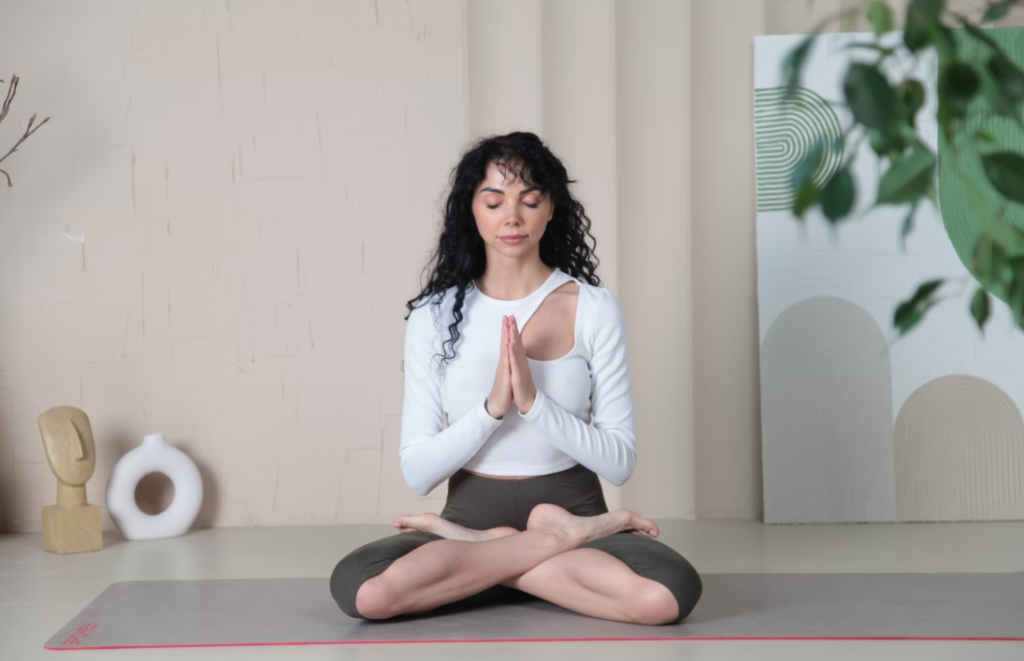
Introduction
In today’s fast-paced world, it can feel like there’s never enough time to slow down and unwind. Yet, one of the simplest and most effective ways to start your day on the right foot is by incorporating a 5-minute meditation practice into your morning routine. But what exactly is morning meditation, and why should you dedicate just five minutes to it every day?
Morning meditation is a mental exercise that allows you to center yourself, breathe deeply, and foster mindfulness. In just five minutes, this short but powerful ritual can help you feel more focused, calm, and ready to take on the challenges of the day ahead. It’s not about carving out an hour for yoga or taking a lengthy break from your responsibilities. It’s about leveraging those precious minutes for your mind’s well-being.
The Power of a 5-Minute Routine
Why Just 5 Minutes?
You may wonder: How can such a short meditation really make a difference? The answer lies in how our brains work. A brief meditation session helps you reset your mental state without feeling overwhelmed. It’s about quality, not quantity.
Understanding the Science Behind It
When we meditate, we trigger a cascade of positive changes in our brain chemistry. Meditation stimulates the production of neurotransmitters like serotonin and dopamine, which are responsible for improving mood and reducing stress. Even just five minutes can lower cortisol levels—the hormone associated with stress—and promote feelings of relaxation.
Stress Reduction in a Short Time
In our daily lives, stress is often unavoidable. But short, mindful sessions can create lasting impacts on stress management. Five minutes of focused breathing and mindfulness activate the parasympathetic nervous system, which calms the body and mind, providing you with a sense of peace before the rush of the day begins.
How to Start Your 5-Minute Meditation
Creating the Right Environment
Setting up the right space is crucial for effective meditation. Find a quiet place where you won’t be interrupted. It could be in your bedroom, on your porch, or even in your office during a break. The goal is to eliminate distractions and create an environment that encourages calmness.
Posture is Key
To get the most out of your meditation, posture matters. Sit comfortably, but not too relaxed. Keep your back straight and shoulders relaxed. You can sit on a cushion, chair, or even on the floor—whichever allows you to maintain an alert yet comfortable position. The idea is to be grounded, but open and receptive to the process.
The 5-Minute Meditation Process
Step 1: Focus on Your Breath
The first step to calming your mind is focusing on your breath. This may seem basic, but the act of deep, intentional breathing helps center your attention and break the cycle of racing thoughts. Breathe in slowly through your nose for a count of four, hold for four, and then exhale for a count of four. Repeat this for a few cycles until you begin to feel more centered.
Step 2: Let Go of Thoughts
It’s common to have thoughts popping up during meditation—don’t worry, it happens to everyone. When thoughts arise, simply acknowledge them without judgment and gently return your focus to your breath. Picture these thoughts as clouds drifting by, and as they float away, bring your attention back to the present moment.
Step 3: Focus on the Present Moment
This is the essence of mindfulness. As you continue to focus on your breath, allow yourself to fully experience the present. Feel your body in the space you occupy, hear the sounds around you, and notice any sensations. This practice of being fully aware and present can help silence the inner chatter and create a peaceful mental space.
Benefits of 5-Minute Morning Meditation
Mental Clarity and Focus
One of the greatest benefits of morning meditation is enhanced clarity and focus. When you start your day with a clear mind, you’re better equipped to handle the tasks ahead. A calm mind helps you think more critically, make better decisions, and avoid distractions throughout the day.
Increased Productivity
You might wonder how five minutes of meditation can affect your productivity. By fostering mental clarity and focus, meditation gives you the tools to be more efficient and effective. The calmness you cultivate in the morning often carries over throughout the day, allowing you to tackle your tasks with greater ease.
Enhanced Emotional Well-being
Meditation has a profound effect on your emotional state. When you regularly practice mindfulness, you become more in tune with your emotions. This awareness can help you respond more calmly to stressful situations and maintain a balanced, positive outlook, even when things get tough.

Common Mistakes to Avoid
Overthinking or Rushing
Many people make the mistake of overthinking during meditation, trying to force themselves to clear their mind. Remember, the goal isn’t to stop thoughts completely, but to gently guide your attention back to your breath when your mind wanders. Rushing through the process is another pitfall—take it slow, and don’t rush to “finish” the session. Give yourself permission to be present.
Unrealistic Expectations
A five-minute meditation might not instantly solve all of life’s problems, and that’s okay. Set realistic goals for yourself and remember that consistency is key. The benefits accumulate over time, so don’t be discouraged if you don’t feel immediate results.
Conclusion
Incorporating a 5-minute meditation practice into your morning routine is an excellent way to start the day with a clear, calm mind. Whether you’re looking for reduced stress, increased productivity, or improved emotional well-being, these few minutes can set the tone for the rest of your day. Meditation isn’t about perfection; it’s about presence and consistency. Give it a try and experience the transformative power of mindfulness in just five minutes each morning.

Frequently Asked Questions (FAQs)
How Do I Know If I’m Meditating Correctly?
Meditation isn’t about achieving perfection. If you’re focusing on your breath and letting go of distractions, you’re on the right track. Keep it simple and avoid stressing about getting it “right.”
Can I Do Meditation More Than Once a Day?
Absolutely! While five minutes in the morning is a great start, you can meditate multiple times a day to maintain calmness and clarity. Many people find short sessions during lunch or before bed helpful.
What Are the Best Times to Meditate?
Morning meditation is ideal for setting the tone of the day, but meditation can be beneficial at any time. Try it in the evening to unwind or during stressful moments to reset your mind.
What Should I Do if My Mind Keeps Wandering?
When your mind wanders, simply acknowledge the thought and gently bring your focus back to your breath. Wandering thoughts are natural—don’t judge yourself for them.
How Long Should I Continue the 5-Minute Practice?
Start with five minutes, but feel free to increase the duration as you become more comfortable. Some people prefer longer sessions, while others stick to a short practice. It’s about what works for you!





